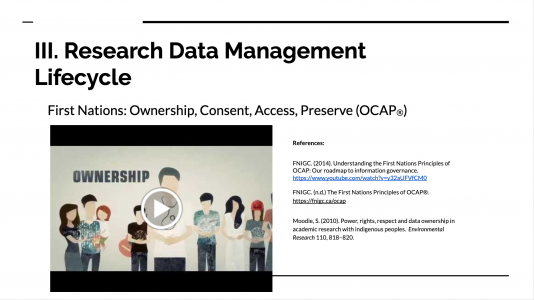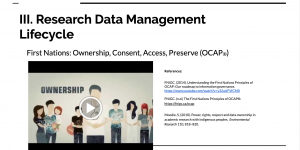
532-presentation-outline (PDF)
Given the choice of researching any key issue in science and engineering librarianship, our group decided to focus on data management in contexts of indigenous-led research. Our research of current projects and practices in Canada drew on examples from the health sciences, indigenous law, and environmental sciences.

Though Ownership, Consent, Access, Preserve (OCAP) is specific to First Nations and Canada, it is a protocol for engaging in reciprocal research relationships with indigenous communities that researchers in the U.S. can learn from. Protocol refers to the set of conditions agreed upon as rules of conduct for the researcher and involvement of indigenous people in decisions and interpretations made at every phase of research.